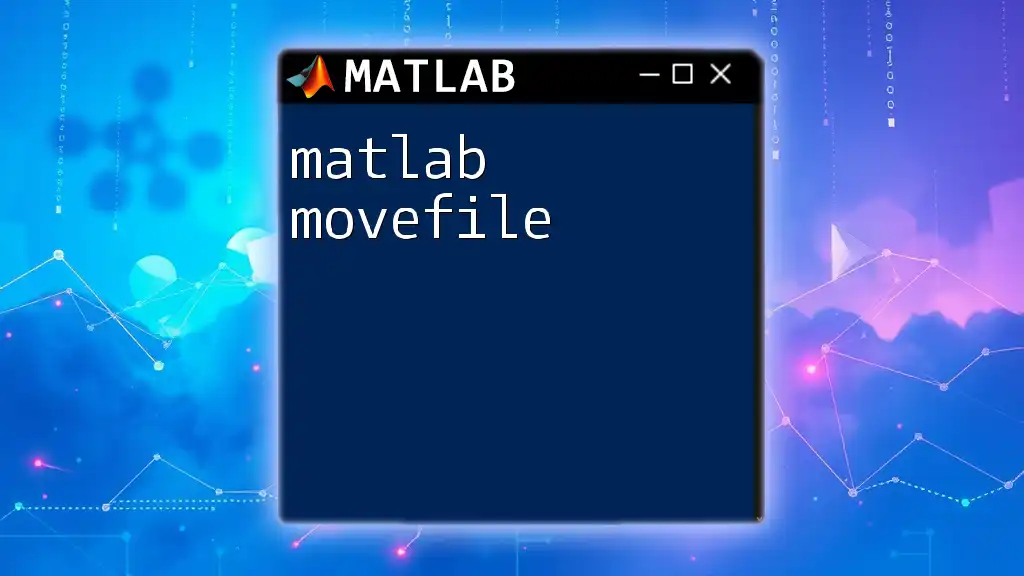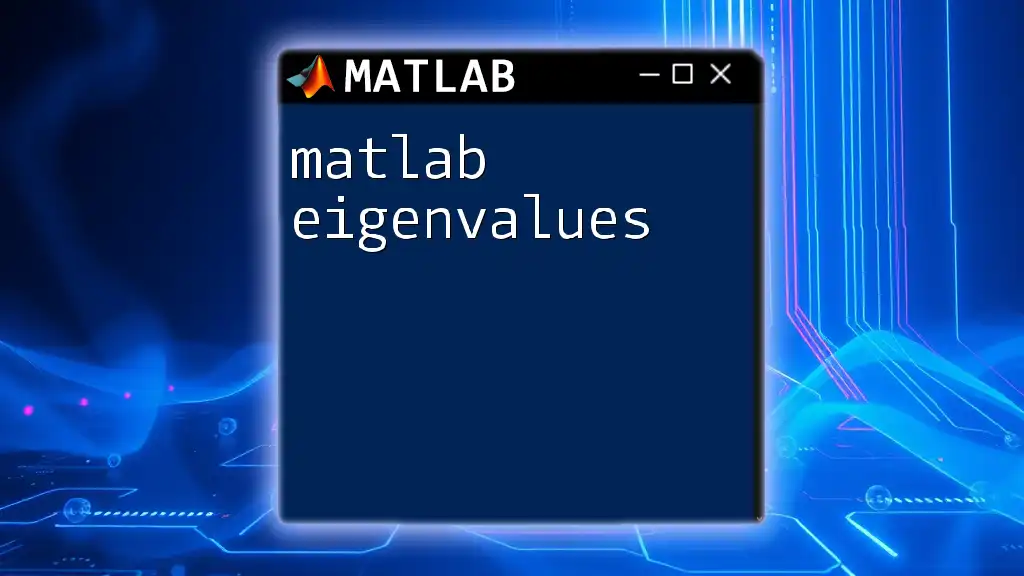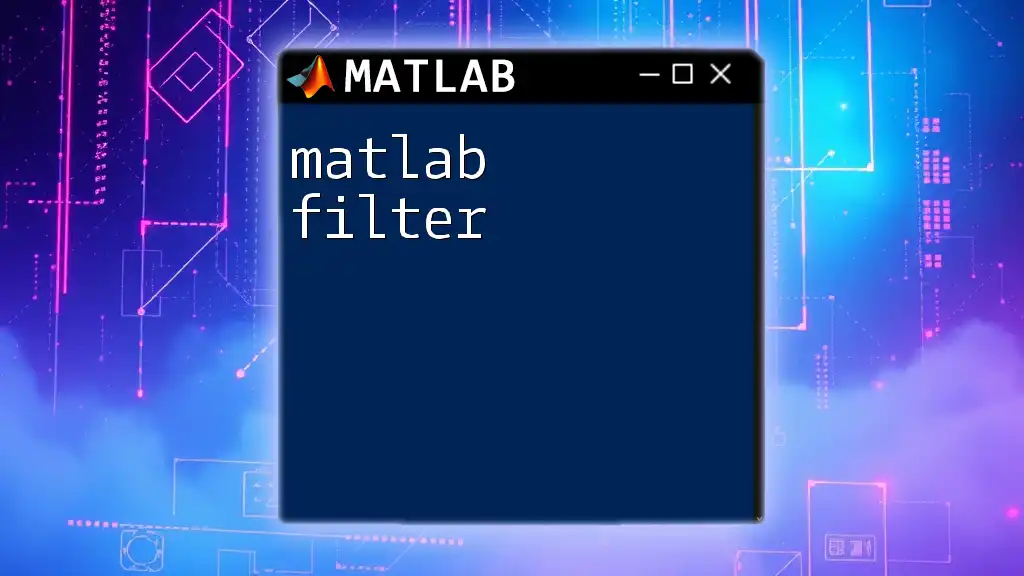The `movefile` function in MATLAB is used to move or rename files and folders, and here is a simple example demonstrating its usage:
movefile('sourceFile.txt', 'destinationFolder/sourceFile.txt');
Understanding `movefile`
What is `movefile`?
The `movefile` command in MATLAB is a powerful tool used for file management. It allows you to move files from one location to another—and even rename them in the process. This flexibility makes it essential for organizing files in your MATLAB projects and ensuring that your data is stored efficiently.
Syntax Overview
The general syntax for the `movefile` command is as follows:
movefile(source, destination)
Here, `source` represents the file or files you wish to move, and `destination` is the target location (which may also include a new filename if you're renaming the file). Understanding this structure is crucial for effective usage.
Common Use Cases
The scenarios where `movefile` is particularly useful include:
- Moving files between directories: Keeping your project's files organized and accessible.
- Renaming files during the move: Making file names more descriptive or consistent.
- Organizing files under specific folders: Creating a systematic workspace that aids in keeping track of different aspects of your project.
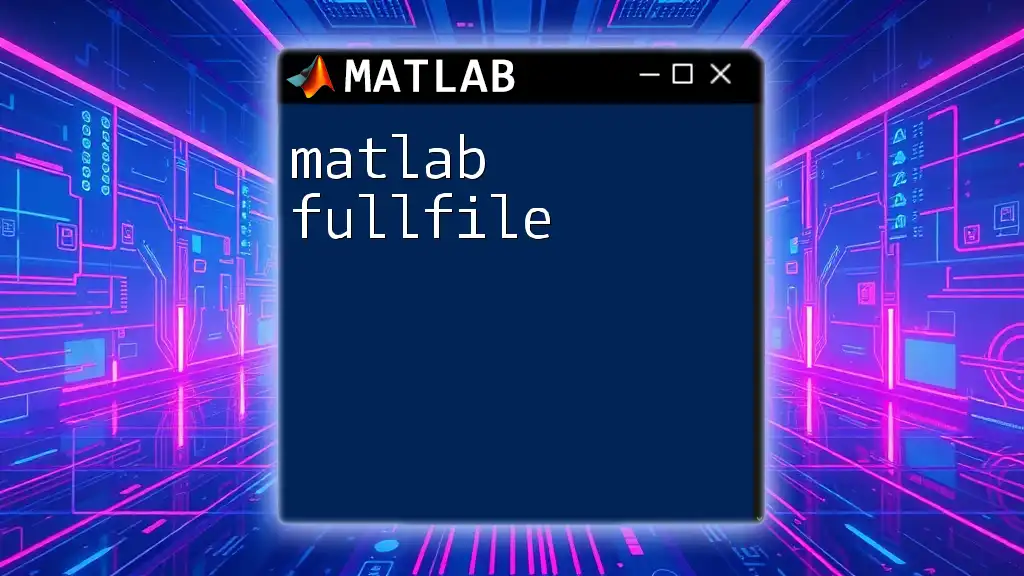
Basic Usage of `movefile`
Moving a Single File
Moving a single file is one of the most straightforward uses of `movefile`. For instance, if you have a file named `myFile.txt` that you want to move to a folder named `newFolder`, the command would be:
movefile('myFile.txt', 'newFolder/myFile.txt')
This command not only moves `myFile.txt` to `newFolder` but also retains the same file name. If `newFolder` does not exist, MATLAB will return an error, so ensuring the destination folder exists before using this command is crucial.
Moving Multiple Files
The `movefile` command also supports wildcards, which allow you to operate on multiple files simultaneously. For example, you can move all `.txt` files from the current directory to a new folder:
movefile('*.txt', 'newFolder/')
This command is useful when you want to relocate all files of a certain type without specifying each one. Using wildcards (`*` for any characters and `?` for a single character) makes it easier to work with large data sets.
Renaming Files During Move
An advanced feature of `movefile` is the ability to rename files while moving them. For instance, if you need to rename `oldName.txt` to `newName.txt` as you move it, use:
movefile('oldName.txt', 'newName.txt')
This directly renames the file as it is moved. This functionality is especially helpful for standardizing file names as part of your file organization strategy.
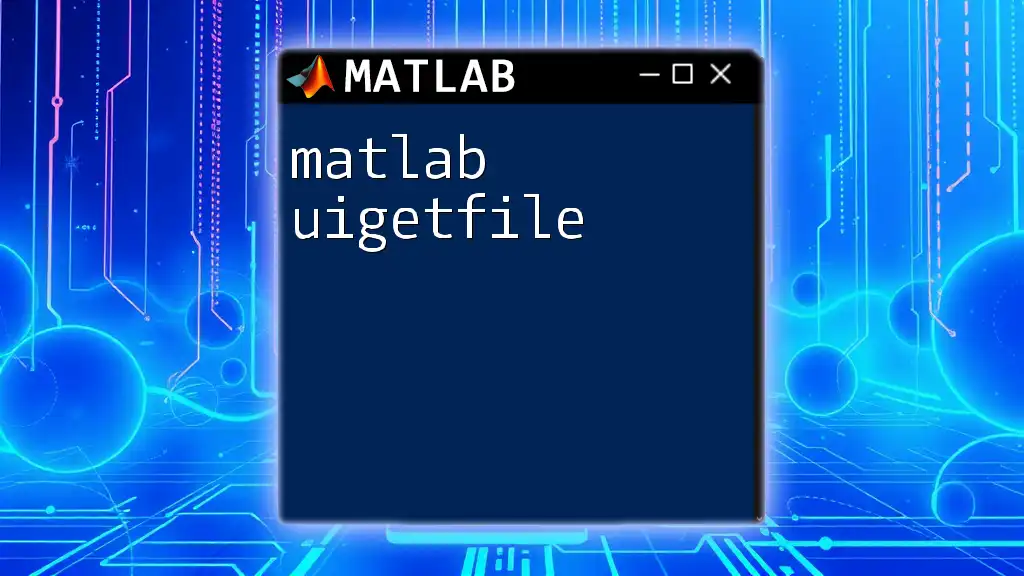
Error Handling in `movefile`
Common Errors and Their Solutions
When using `movefile`, you may encounter several common errors, such as:
- File Not Found: If the source file does not exist, MATLAB will raise an error.
- Permission Denied: If you don’t have permission to access the source or destination location, an error occurs.
To effectively handle these errors, wrap your `movefile` command within a `try-catch` block:
try
movefile('myFile.txt', 'newFolder/')
catch ME
fprintf('Error: %s\n', ME.message)
end
This approach ensures that your code continues to execute even if an error arises, allowing you to respond accordingly.
Checking File Existence Before Moving
Before attempting to move a file, it’s often wise to check if it exists using the `exist` function, which returns a status code indicating the file's presence. For example:
if exist('myFile.txt', 'file')
movefile('myFile.txt', 'newFolder/')
else
disp('File does not exist.')
end
This preventive step can save you from running into file-not-found errors during execution.
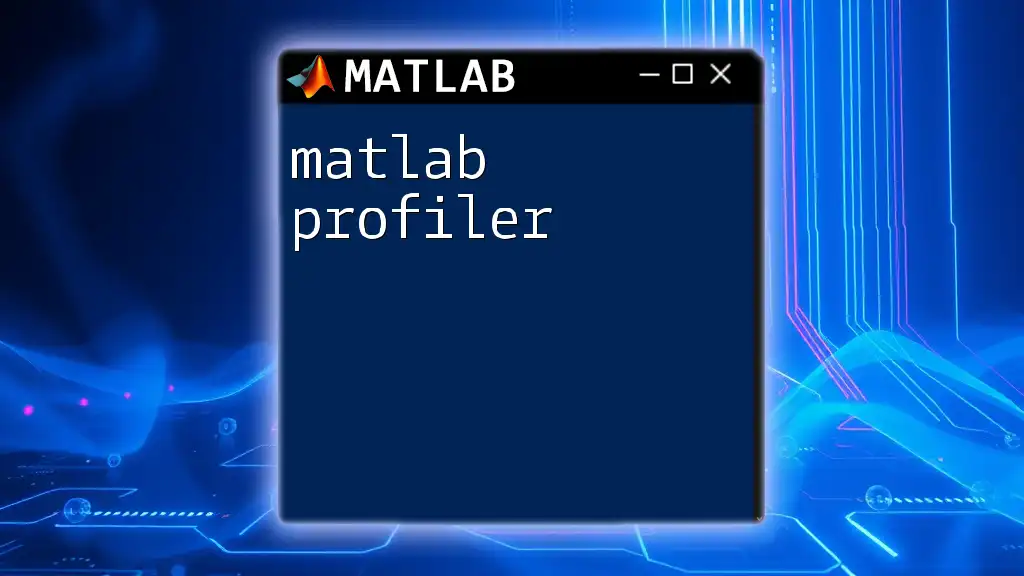
Advanced Features of `movefile`
Overwriting Files
One important detail to note is how `movefile` handles overwriting. By default, if a file with the same name exists at the `destination`, MATLAB will not overwrite it and will throw an error instead. However, you can force overwriting by adding the `'f'` argument:
movefile('myFile.txt', 'newFolder/myFile.txt', 'f')
This command will overwrite the existing file without prompting. Be cautious with this feature, as it can lead to loss of data if used improperly.
Moving Directories
In addition to moving files, `movefile` can also move entire directories. For example, if you wish to move a directory named `myFolder` to a new parent folder, use the command:
movefile('myFolder', 'newParentFolder/')
This command is advantageous when you wish to reorganize large projects without the need to deal with individual files.
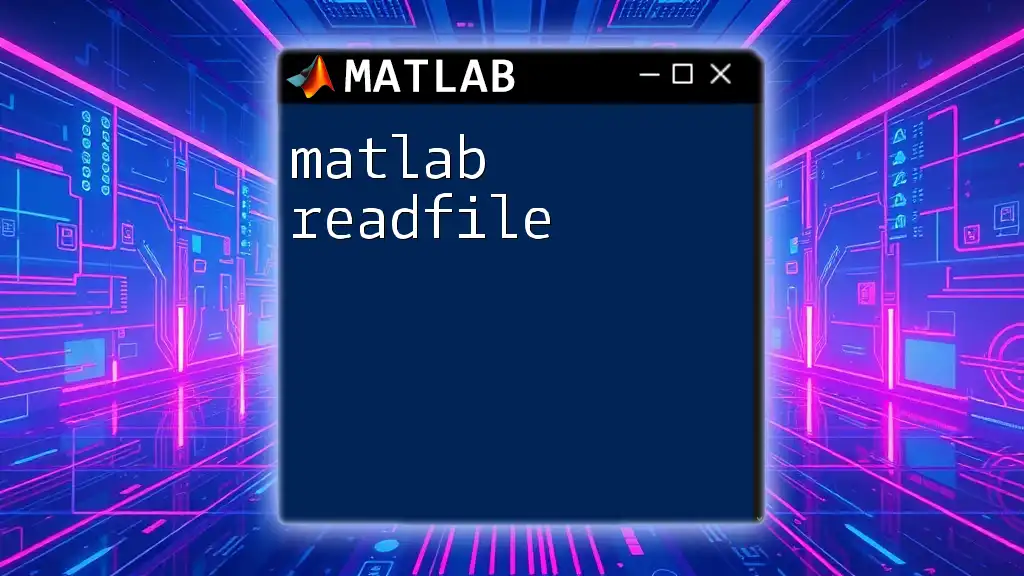
Best Practices for Using `movefile`
Organizing Files Efficiently
To ensure effective usage of `movefile`, consider adopting systematic file organization strategies. Group related files into directories, use clear and descriptive naming conventions, and maintain a logical directory structure that reflects your project's components. This approach can streamline your workflow significantly.
Automating File Movement
You can also script file movements to automate organization tasks within your projects. For instance, if you want to move all `.txt` files to a folder named `TextFilesFolder`, you could use the following script:
files = dir('*.txt');
for i = 1:length(files)
movefile(files(i).name, 'TextFilesFolder/')
end
Automation not only saves time but also reduces the risk of human error during file management tasks, enhancing overall productivity.

Conclusion
The `matlab movefile` command is an essential tool for effective file management, allowing for seamless file organization and manipulation within your MATLAB environments. By mastering its various features—ranging from basic usage to advanced error handling and directory management—you can significantly enhance your programming experience. Practice using `movefile` and explore its potential further to streamline your MATLAB projects.

Additional Resources
To deepen your understanding, consider consulting the official MATLAB documentation on file I/O and community forums where you can interact with other learners and experts. Exploring books or online courses dedicated to MATLAB file management will also bolster your skill set in this area.

